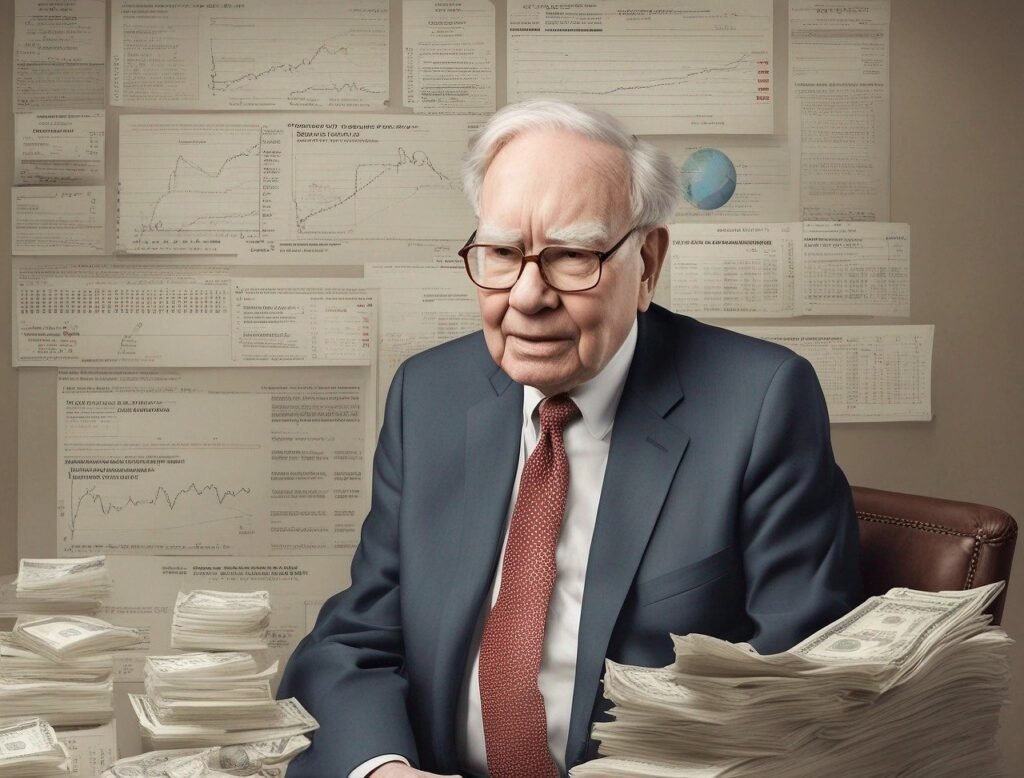
Warren Buffett, the “Oracle of Omaha,” is widely regarded as one of the most successful investors of all time. His value investing philosophy and long-term approach have generated unparalleled returns for Berkshire Hathaway shareholders. But even the best investors make mistakes, and Buffett readily admits to his own missteps. Let’s explore a few of his mistakes and the valuable lessons they offer for aspiring investors:
1. Ignoring Technology: Missing the Dot-Com Boom
While Buffett championed traditional industries like insurance and railroads, he initially underestimated the transformative potential of technology. He famously passed on investing in companies like Google and Amazon, fearing overvalued stocks and unsustainable growth. This experience highlights the importance of staying open-minded and adapting to evolving industries, even when they seem outside your comfort zone.
2. ConocoPhillips: Misjudging Value in a Volatile Market
In 2006, Buffett acquired a significant stake in ConocoPhillips, believing it was a stable, undervalued energy giant. However, oil prices plummeted, and the investment turned sour, resulting in billions of dollars in losses. This case underscores the importance of thorough due diligence, considering potential risks, and avoiding overconcentration in single sectors.
3. Dexter Shoe Company: Focusing on Brand Over Fundamentals
In 1993, Buffett acquired Dexter Shoe Company, attracted by its strong brand recognition. However, he underestimated the competitive landscape and changing consumer preferences. The investment ultimately proved unsuccessful, reminding investors that brand loyalty alone cannot guarantee success in a dynamic market.
4. Texas Instruments: Failing to Adapt to Disruptive Innovation
Buffett’s long-held investment in Texas Instruments faltered as the company struggled to adapt to the rise of smartphones and mobile computing. This case emphasizes the need to consider a company’s ability to innovate and adapt to disruptive technologies in its industry.
5. Berkshire Hathaway Itself: Taking on Too Much Debt
In 2020, Berkshire Hathaway took on significant debt to acquire Precision Castparts. While the move diversified the company, it raised concerns about increased financial risk. This serves as a reminder to maintain a balanced approach to debt and prioritize long-term financial health over quick gains.
Learning from the Master’s Missteps:
These are just a few examples of Buffett’s mistakes, and it’s crucial to remember that his overall track record remains exceptional. However, analyzing his missteps offers valuable insights:
- No one is perfect: Even the most experienced investors make mistakes. Be prepared to learn from your own and those of others.
- Adapt and evolve: Stay informed about changing industries and be willing to adjust your investment strategies accordingly.
- Balance risk and reward: Don’t chase hot trends or overconcentrate your portfolio in risky bets.
- Focus on fundamentals: Beyond brand recognition or short-term hype, prioritize companies with strong financials and sustainable competitive advantages.
- Don’t fear diversification: While concentration can lead to high returns, diversifying across sectors and asset classes mitigates risk.
By understanding and learning from the mistakes of even the most successful investors, you can make informed investment decisions and navigate the complex world of finance with greater confidence. Remember, the investment journey is a continuous learning process, and even the Oracle stumbles occasionally.


